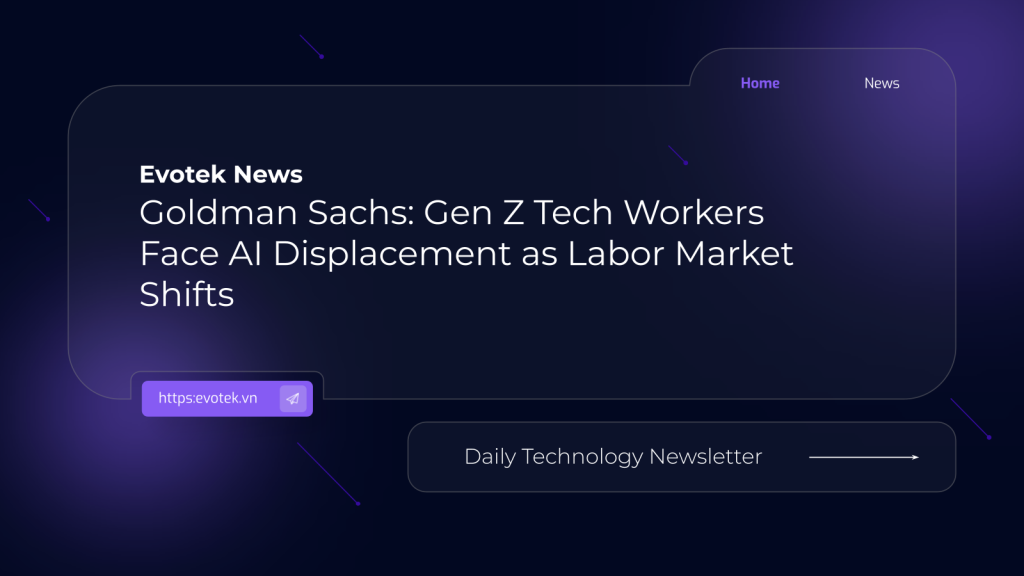A stark warning from Goldman Sachs suggests that Artificial Intelligence (AI) is already reshaping the labor market, with Gen Z tech workers bearing the brunt of early job displacement. Joseph Briggs, a senior global economist for Goldman Sachs’ research division, recently highlighted on the bank’s ‘Exchanges’ podcast that young professionals in the tech sector are particularly vulnerable.
According to Briggs, the unemployment rate for tech-sector individuals aged 20 to 30 has surged approximately 3% since the start of the year. This represents a significantly higher increase compared to both the broader tech industry and other young worker demographics, signaling a concentrated impact within this segment.
While overall AI adoption in workplaces remains relatively modest – with Goldman Sachs’ recent report, “Quantifying the Risks of AI-Related Job Displacement,” coauthored by Briggs, indicating only about 9% of companies regularly utilize the technology for production – its influence on the tech industry is undeniable. Notably, the sector has seen a decline in employment over the past few years, a trend that coincides with the advent of OpenAI’s ChatGPT. This marks a significant shift, interrupting over two decades of consistent job growth within the tech landscape.
Goldman Sachs forecasts that AI could ultimately displace between 6% and 7% of the total global workforce. The tech industry, in particular, is experiencing an outsized effect as major players like Microsoft, Google, and Meta have collectively shed nearly 30,000 jobs, signaling a strategic pivot towards AI investment and automation.
Unlike the millennial generation, often characterized by the ‘learn-to-code’ mantra, Gen Z, new to the professional world, is confronting significant hurdles in securing tech positions. Beyond the direct competition from advanced AI, the broader rise of automation is fundamentally disrupting entry-level roles. Since January 2023, entry-level job postings across the U.S. have plummeted by approximately 35%. This pressure is acutely felt by Gen Z; an April World Economic Forum report revealed that almost half of U.S. Gen Z job seekers believe AI has diminished the value of their college degrees.
Briggs clarified that while the overall impact of AI on the broader young labor market might appear modest from an aggregate viewpoint, a closer examination of specific industries reveals emerging challenges. “If we start zeroing in and zooming in on these specific industries where we are seeing AI be used to drive efficiency gains, there are signs that headwinds are emerging there,” he noted, underscoring the targeted nature of AI’s disruption.

 日本語
日本語 한국어
한국어 Tiếng Việt
Tiếng Việt 简体中文
简体中文